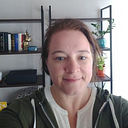THE EDUCATION OF A READER: MY DEDICATED SELF-LEARNING EXPERIMENT THROUGH BOOKS
For the most part, there is no rhyme or reason to what I read.
Sometimes I’ll see something fly by on Twitter:
Or something will pop from a website I read:
Amazon, of course, has basically rooted itself inside my brain at this point:
Until recently, I never gave much of a thought about what I read. When something popped up, I read it.
Simple. Easy. Clean.
In the past few months, this has changed a bit.
I’ve been thinking a lot about my reading and how I can be a better reader. I came across this post from a few years ago on Farnham Street that has stuck with me the last couple of weeks.
The TL;DR version (I mean, really guys?) of the post talks about St. John’s College in Annapolis, Maryland and how its entire curriculum based around reading books.
The Farnham Street post links to this original post on The New Yorker by a graduate of St. John’s:
The college’s curriculum was an outrage. No electives. Not a single book in the seminar list by a living author. However, no tests. No grades, unless you asked to see them. No textbooks — I was confused. In place of an astronomy manual, you would read Copernicus. No books about Aristotle, just Aristotle. Like, you would read book-books. The Great Books, so called, though I had never heard of most of them. It was akin to taking holy orders, but the school — St. John’s College — had been secular for three hundred years. In place of praying, you read.
I’m someone who actually read in college, and I mean for fun, in addition to the books we were assigned to read. Plus, I took a variety of courses to round out my education — I mean I’m sure there are a lot of Business majors with Wildlife and Fisheries minors and an overabundance of extra history course credits that actually didn’t apply to any degrees out there, right?
Needless to say, I was intrigued.
ARE ‘OLD’ BOOKS BETTER?
There is a practice out there that a lot of influential readers and writers hold to in that they don’t read any new books. Let’s say new here is in the last 20 years.
Some could cite this as the book version of the Lindy Effect, which was popularized by Nassim Talib in his book Antifragile.
If a book has been in print for forty years, I can expect it to be in print for another forty years. But, and that is the main difference, if it survives another decade, then it will be expected to be in print another fifty years. This, simply, as a rule, tells you why things that have been around for a long time are not “aging” like persons, but “aging” in reverse. Every year that passes without extinction doubles the additional life expectancy.
Now, admittedly, I have yet to read this book. So I’m not going to do a pretend pontification on what it’s all about (lucky day for you!). But I do think the concept likely holds.
Think about it this way: all those ‘classics’ we read in school are classic for a reason. Shakespeare wasn’t the only dude writing plays in the 1600s. And it’s a universal truth that Jane Austen wasn’t the only person writing about the life of upper crust English folk in the early 1800s.
But, these books are still around. We’re still reading them in AP English and I’d guess people will still be reading them 200 years from now (assuming we all don’t die in some mass climate change catastrophe).
The general course of study at St. John’s holds to this practice to the extreme.
SO WHAT DOES THIS HAVE TO DO WITH ANYTHING?
Impatient, aren’t we?
For the fist time, I’m actually thinking about how I want to approach my own reading education in 2017. No, everything doesn’t have to be a course of study, but for me, I’m massively motivated by learning it’s just how I’m built.
While I do track everything I read in Goodreads, this year I want to take it a step further. I’m going to focus my reading more specifically on two main areas.
First, on the classics. And second, on books that are primarily focused outside the US (especially those written by non-American authors).
I’ve always been reluctant to actually limit myself to a certain type of book. That just makes reading feel like a chore which is something I never want to happen.
So the best way for me to approach this is through a compromise and here it is:
Each month I will read 1 classic (here I define classic as anything written before 1950) and 1 book written by a non-American author about a place that is not America.
Thus, I start my education with some baby steps.
I’m sure I won’t be able to work my way up to reading every book on the St. John’s undergraduate seminar reading lists (which you can find here and here).
But, I’m genuinely curious to see what happens. I always thought dedicated self-learning was a crucial skill set, so it’s time to put it into practice. You can follow along here, or see what I’m finishing on Goodreads.
Any recommendations for either of my required reading is welcome. Let me know in the comments!
